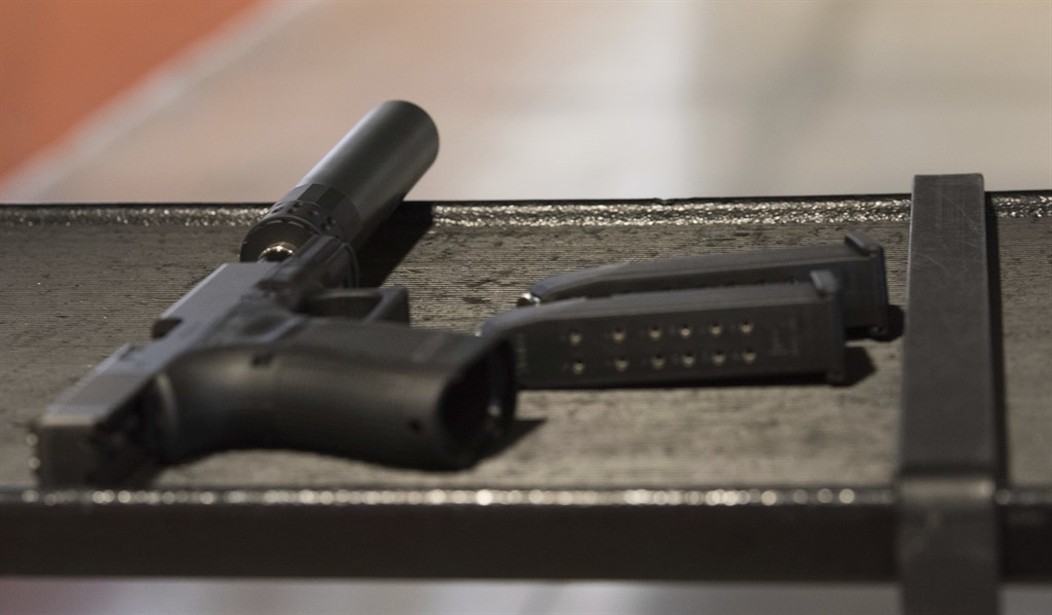Illinois is one of a handful of states that go beyond federal law when it comes to restricted firearms. While possession of items like short-barreled rifles and suppressors are legal at the federal level as long as gun owners are willing to jump through all of the hoops and hurdles contained within the National Firearms Act, in Illinois it’s virtually impossible for the average citizen to purchase or possess either.
Now an Illinois man has filed a lawsuit challenging the state’s ban, arguing that both SBRs and suppressors fall under the protection of the Second Amendment. Robert Dorman is no stranger to the courts; the local paper in Madison County, Illinois notes that he’s filed “numerous lawsuits and other legal challenges” against officials in the county since he was terminated as the county’s IT director in 2020, though the paper doesn’t say whether or not any of them have been successful.
Regardless of his track record in recent years, Dorman’s latest lawsuit has to be considered a legal long shot.
In the three-count suit, Dorman claims he wants to acquire two prohibited items, a Model 1911 .45 caliber pistol with an attachable shoulder stock and a 5.56 mm rifle with a 14.5-inch barrel. He indicated in the second count that he also is interested in acquiring a suppressor, or “silencer,” for home defense.
Regarding short-barreled rifles, Dorman’s suit states that prior to 1934 — when the National Firearms Act first regulated them — the rifles and handguns equipped with shoulder stocks were common. The suit states those arms are covered under the Second Amendment’s right to keep and bear arms.
Dorman is seeking a ruling that Illinois residents with a federal “Curio and Relics” firearm license be allowed to possess short-barreled rifles and that the prohibition is unconstitutional.
Regarding suppressors, Dorman’s suit states that prior to 1934 suppressors were unregulated. The suit cites the shipping of a suppressor from the Maxim Silencer Co. of Hartford, Connecticut, to a person in Collinsville prior to the National Firearms Act. The suit also claims suppressors are protected under the Second Amendment.
The suit cites the Madison County Sheriff’s Department’s recent purchase of short-barreled AR-style rifles with suppressors. One of the justifications was that, if the rifles are fired within an enclosed space like a building, they would likely cause hearing damage.
Dorman’s lawsuit was filed in state court, so he’s not challenging the constitutionality of the National Firearms Act itself.. at least not directly. Instead, his argument is that the state of Illinois is depriving him and other law-abiding residents of their right to possess items that used to be and would be in common use if they weren’t restricted under the NFA and banned by Illinois law.
The biggest flaw in that argument is, for now at least, the Supreme Court hasn’t called into question the constitutionality of the National Firearms Act, nor has it weighed in on whether those restricted items covered under the NFA enjoy any protection whatsoever under the Second Amendment. If NFA items are not protected by the Second Amendment, then Illinois is free to ban any and all arms covered under the Act. If, on the other hand, some or all of the arms restricted by the NFA are protected by the Second Amendment, then the real issue becomes the NFA itself and not Illinois’ ban on the civilian possession of NFA items like short-barreled rifles or suppressors.
So far the state Supreme Court has been reluctant to overturn any Illinois gun control laws, even when lower courts have determined that a particular measure violates the Second Amendment. The state’s FOID card requirement has been ruled unconstitutional twice in recent years, but the state Supreme Court has voided those decisions on technical grounds both times. I highly doubt that the same court would find that Illinois’ ban on the possession of short-barreled rifles and suppressors is a violation of the Second Amendment when it won’t even recognize that requiring a state-mandated permission slip to possess a gun in the home infringes on the right to keep and bear arms. Dorman’s heart may be in the right place, but his argument is probably better suited for federal, not state court… and even there his argument would face pretty long odds given what the Supreme Court has said about the NFA over the decades.








Join the conversation as a VIP Member